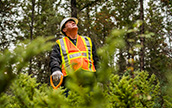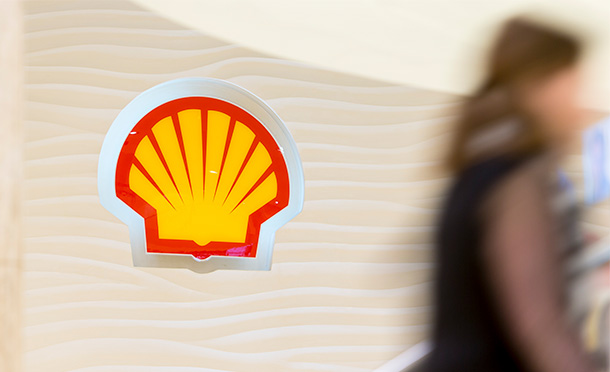Social and economic impacts
We are assessing our social and economic impacts in a number of countries and regions. To do this, we have enlisted the help of the company Oxford Economics using its Global Sustainability Model to assess social, environmental and economic impacts.
In 2021, Shell published its first report based on 2019 social and economic performance data. It details the impacts of our activities in five countries: the Netherlands, UK, USA, Nigeria and India. These countries were chosen because we have significant and wide-ranging operations in them.
The report provides performance data on Shell’s contribution to in-country gross domestic product, job numbers, tax payments to governments, and our spending on social and educational programmes. The report also provides details of our operations in each country and our procurement of goods and services. We intend to expand this work to include more European countries.
Supply chain engagement
Our suppliers are critical to our ability to run our businesses. They are involved in almost every step of our operations. They often play an important part in Shell having a positive impact on local communities and achieving business success. Shell aims to work with suppliers, including contractors, that behave in an economically, environmentally and socially responsible manner, as set out in our Shell General Business Principles and Shell Supplier Principles.
The way we engage with our contractors and suppliers is based on our Shell Supplier Principles, which are embedded in contracts. They require contractors and suppliers:
- to commit to protect the environment in compliance with all applicable environmental laws and regulations;
- to use energy and natural resources efficiently; and
- to continually look for ways to minimise waste, emissions and discharge from their operations, products and services.
We also work with our partners and industry peers to include worker welfare in industry standards, guidance, and best practice. This helps raise expectations and levels of consistency across the industry. We achieve results in this area partly by participating in organisations such as:
- the Building Responsibly group of engineering and construction companies working together to raise the bar in promoting the rights and welfare of workers across the industry;
- the Joint Qualification System, an initiative of BP, Equinor, Shell and TotalEnergies, aimed at creating a collaborative approach to human rights supplier assessments;
- the International Association of Oil and Gas Producers (IOGP); and
- the IPIECA, the global oil and gas industry association for advancing environmental and social performance across the energy transition.
We also work closely with our key contractors. As a result, 23 of our biggest contractors have signed up to the Building Responsibly principles, which cover more than 1 million workers.
Helping our suppliers decarbonise
We continually work with our suppliers to find ways to reduce greenhouse gas emissions across our supply chains.
In 2020, Shell and 50 of our major suppliers piloted a new digital platform, the Shell Supplier Energy Transition Hub. This platform enables suppliers to set emission targets and track performance, share best practice and exchange emissions data with their own supply chains. In 2021, we rolled out the platform free of charge to the rest of our supply chain and any other interested companies.
See our website shell.com for more information about how we engage with contractors and suppliers.









